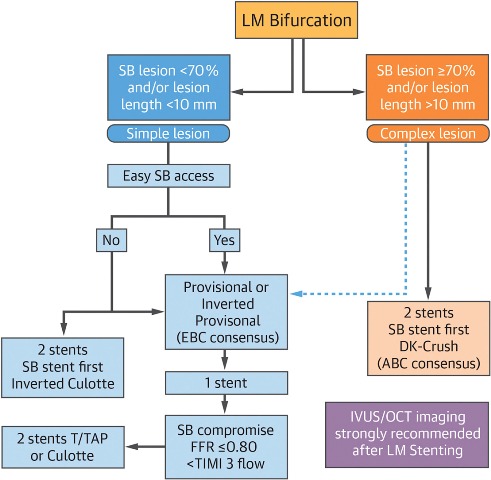
左主干支架
Review ArticleVolume 10, Issue 9, 8 May 2017, Pages 849-865
JOURNAL:JACC Cardiovasc Interv. Article Link
Rab T, Sheiban I, Louvard Y et al Keywords: bifurcation; left main; stenting techniques
Contemporary clinical trials, registries, and meta-analyses, supported by recent results from the EXCEL (Everolimus-Eluting Stents or Bypass Surgery for Left Main Coronary Artery Disease) and NOBLE (Percutaneous Coronary Angioplasty Versus Coronary Artery Bypass Grafting in Treatment of Unprotected Left Main Stenosis) trials, have established percutaneous coronary intervention of left main coronary stenosis as a safe alternative to coronary artery bypass grafting in patients with low and intermediate SYNTAX (Synergy Between Percutaneous Coronary Intervention With Taxus and Cardiac Surgery) scores. As left main percutaneous coronary intervention gains acceptance, it is imperative to increase awareness for patient selection, risk scoring, intracoronary imaging, vessel preparation, and choice of stenting techniques that will optimize procedural and patient outcomes.
